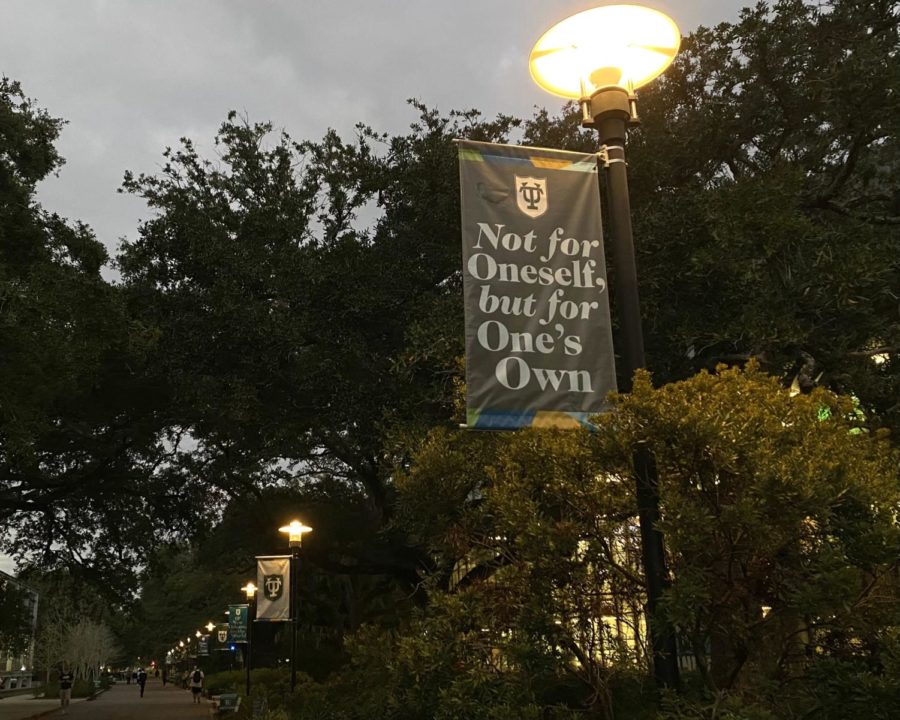Service learning program hopes to improve post-pandemic
November 2, 2022

Service learning is a hallmark of Tulane University. The school was ranked the second-best university in the country for community service by the Princeton Review earlier this year.
But amid nationwide movements for greater equality and the ongoing struggles of the pandemic, the department is striving for higher inclusivity.
“Our mission here is to build reciprocal and mutually beneficial relationships with the community through service in a way that supports students learning in their courses,” Bridget Smith, assistant director for academic community engagement, said. “But is really meant to serve the public in a community-defined way.”
The department has little control over the content of service learning classes and relationships between faculty and community partners. Most of Smith’s work consists of finding partners, training staff and managing the clash that sometimes occurs between the program’s goals and real-world variables.
“It’s kind of like balancing a pencil on your fingertip,” she said.
Part of that balance is collecting feedback from community partners. Those partners approach Smith with service needs and faculty approach her with class ideas. Her office serves as “the matchmakers; we try to bring in those two interested parties together and see … [if] this is a good match,” Smith said.
That all plays out in professor Amanda Hill’s course, Education in a Diverse Society.
Hill redesigned the course by working “with community leaders and educators to bring in content that was both interesting and academically rigorous, but also really … honored the community,” she said.
Hill’s class works with the local nonprofit Excite All Stars, which focuses on kids’ empowerment. Through this organization, Tulane students partner with a middle school where they work with students on leadership development and college preparedness.
To promote equity within service learning, Smith’s office runs ten-week seminars for the faculty teaching service learning classes. The program focuses on eliminating a “savior mindset” and teaching to a diverse classroom. Her office is not directly involved in the classes, but she works to give the community partners a voice in the relationship.
“All of that is really based on building strong relationships with a community partner, which takes a lot of time and is based on openness and reflection to move it forward in a way that is really equitable,” Smith said.
Collecting data is also part of the reflection process, but issues with staffing and response rates have prevented effective data collection in Smith’s office.
“Everything we do is just focused on relationship building,” Smith said. “New Orleans is a relationship-based city. You get a lot further just talking to somebody than having an assessment form, as valuable as that is for larger assessment purposes.”
To improve this process, Tulane is introducing GivePulse, a new platform that will allow local organizations to post service needs. The platform will integrate with Canvas to improve assessment metrics and coordination between Tulane and community partners.
According to Hill, her class has been successful in its assessment.
“We do surveys of the Tulane students, of the middle school students, their teachers and the nonprofit partners. [We] look at satisfaction, what students got out of the program [and] level of engagement,” she said. “The marks are always really high.”
But student engagement is integral. Sophomore Ariel Siegel worked at Grow Dat Youth Farm for a service learning class last semester. The nonprofit provides food security, safe spaces, salaries and leadership training for local youth through sustainable farming.
After 20 hours at the farm, Siegel said she still did not feel totally connected with New Orleans, but appreciated the experience.
“I don’t think I would have ever interacted with them otherwise because Tulane is very separate from New Orleans I would say, so that made me more immersed in the community, but other than that [I did not feel] like, ‘Oh my god, I’m in New Orleans now,’” Siegel said.
She also said she did not feel her classroom content connected to her service learning.
The service graduation requirement necessitates 20 to 40 hours of service in an academic setting. Unapproved extracurriculars do not count towards that requirement.
Smith said she has many ideas for improvement in her office, but the pandemic halted its growth.
“How do we make our partnerships more equitable?” she said. “How do we make the program in general more equitable and meaningful for our partners [and] for students of all backgrounds?”






















Leave a Comment